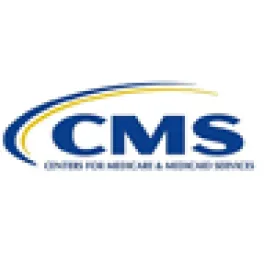On March 30, 2020, the Centers for Medicare and Medicaid Services (CMS) announced it will waive certain penalties classes of violations of the Physician Self-Referral Law, known as the Stark Law. The affected penalties are those listed under Section 1877(g) of the Social Security Act (42 U.S.C. 1877). These blanket waivers are effective retroactively to March 1, 2020.
The Stark Law is a strict liability statute generally prohibiting a physician from making referrals of Medicare- and Medicaid-designated health services to an entity with which the physician or an immediate family member has a financial relationship. Typically, if such a relationship exists between a physician and an entity, then the arrangement must satisfy an express Stark Law exception for the physician to bill for the referred services.
The blanket waivers temporarily allow payments and referrals between physicians and covered entities if the relationship falls into one of the express categories during the COVID-19 pandemic, even if such an arrangement would otherwise not meet a Stark Law exception. The blanket waivers apply to payments and referrals between an entity covered under the Stark Law and (1) a physician, (2) the physician's organization defined under 42 C.F.R. 411.354(c) or (3) the physician's immediate family member.
The blanket waivers must relate to one of the explicitly defined COVID-19 purposes and meet the following conditions:
-
The providers are acting in good faith to provide care in response to the COVID-19 pandemic.
-
The financial relationship or referral is protected by one of CMS's 18 permitted relationships (discussed below).
-
The government does not determine that the financial relationship creates fraud and abuse concerns.
Defined COVID-19 Purposes
To apply, the blanket waivers must be related to COVID-19 purposes. Such purposes include:
-
"Diagnosis or medically necessary treatment of COVID-19 for any patient or individual, whether or not the patient or individual is diagnosed with a confirmed case of COVID-19;
-
Securing the services of physicians and other health care practitioners and professionals to furnish medically necessary patient care services, including services not related to the diagnosis and treatment of COVID-19, in response to the COVID-19 outbreak in the United States;
-
Ensuring the ability of health care providers to address patient and community needs due to the COVID-19 outbreak in the United States;
-
Expanding the capacity of health care providers to address patient and community needs due to the COVID-19 outbreak in the United States;
-
Shifting the diagnosis and care of patients to appropriate alternative settings due to the COVID-19 outbreak in the United States; or
-
Addressing medical practice or business interruption due to the COVID-19 outbreak in the United States in order to maintain the availability of medical care and related services for patients and the community."
Those wishing to use the blanket waivers need not provide advance notice to or receive approval from CMS. Those who rely on a blanket waiver, however, must retain records relating to its use, and the records must be available for the U.S. Department of Health and Human Services to review upon request.
The Blanket Waivers
The blanket waivers do not suspend the entire Stark Law. Rather, they apply only to 18 expressly enumerated relationships. These relationships can be divided into two classes: those that address payments and those that address referrals.
Allowed Payments
-
Personally Performed Services: Remuneration paid by an entity to a physician above or below the fair market value (FMV) for the physician's personally performed services to the entity is permitted.
-
Office Space and Equipment Rental Payments: Remuneration paid by an entity to a physician or by a physician to an entity below FMV for rental of office space or equipment is permitted by the waivers. Rental payments exceeding FMV are not covered.
-
Purchase of Items or Services: Remuneration paid by an entity to a physician or by a physician to an entity below FMV for the purchased items or services, including use of the entity's premises, is permitted by the purchase waivers. The purpose of these waivers is to permit parties to rapidly source critical items or services without overpaying for the service.
-
Additional Incidental Benefits to Medical Staff: Remuneration from a hospital to a physician in the form of medical staff incidental benefits that exceed the $36-per-item limit set forth in 42 CFR § 411.357(m)(5) is protected. This waiver permits a hospital to offer a range of benefits to its medical staff members to facilitate participation in the health care workforce, such as childcare services or clean clothing for the physician while at the hospital.
-
Nonmonetary Compensation: Remuneration from an entity to a physician in the form of nonmonetary compensation that exceeds the $423 annual limit set forth in 42 CFR § 411.357(k)(1) is permitted. Similar to the medical staff benefit waiver, this waiver allows an entity to provide additional services that would otherwise exceed the limits established by the regulations to facilitate participation in the health care workforce during the COVID-19 pandemic. Currently, it is unclear how this waiver will be assessed when the blanket waiver period ends because the public emergency declaration caused by the COVID-19 pandemic is terminated. More guidance from CMS on the application of this waiver may be issued.
-
Low-Interest or Interest-Free Loans: Remuneration among individuals and entities in the healthcare industry in the form of a loan, with an interest rate below FMV or on terms that are unavailable from another independent lender, is allowed. Essentially, CMS is attempting to increase cash liquidity within the health care industry to mitigate potential cash flow problems among health care workers and providers during the COVID-19 pandemic.
Allowed Referrals
-
Referrals by Physician-Owner of a Hospital: Referrals by a physician-owner of a hospital that temporarily expands its facility capacity above the number of operating rooms, procedure rooms and beds for which the hospital was licensed on March 23, 2010 without prior application and approval of the expansion of facility capacity will temporarily not be prohibited by the Stark Law. (In the case of a hospital that did not have a provider agreement in effect as of March 23, 2010, but did have a provider agreement in effect on December 31, 2010, the effective date of such provider agreement applies.)
-
Referrals by Physician-Owner of Ambulatory Surgical Centers that Temporarily Convert to Hospitals: Referrals by a physician-owner of a hospital that converted from a physician-owned ambulatory surgical center to a hospital on or after March 1, 2020 are permitted provided that:
-
The hospital does not satisfy one or more of the requirements of Section 1877(i)(1)(A) through (E) of the Act.
-
The hospital enrolled in Medicare as a hospital during the period of the public health emergency described in Section II.A of this blanket waiver document.
-
The hospital meets the Medicare conditions of participation and other requirements not waived by CMS during the period of the public health emergency described in section II.A of this blanket waiver document.
-
The hospital's Medicare enrollment is not inconsistent with the Emergency Preparedness or Pandemic Plan of the state in which it is located.
-
Referrals by Owners to a Home Health Agency: Referrals are now permitted by a physician of a Medicare beneficiary for the provision of designated health services to a home health agency (1) that does not qualify as a rural provider under 42 CFR 411.356(c)(1) and (2) in which the physician (or an immediate family member of the physician) has an ownership or investment interest.
-
Referrals for Services at Locations Other than the Health Care Facility: Referrals are now permitted by a physician in a group practice for medically necessary designated health services furnished by the group practice in a location that does not qualify as a "same building" or "centralized building" for purposes of 42 CFR 411.355(b)(2). Also, referrals by a physician in a group practice for medically necessary designated health services furnished by the group practice to a patient in his or her private home, an assisted living facility, or independent living facility where the referring physician's principal medical practice does not consist of treating patients in their private homes will not violate the Stark Law.
-
Referrals to Immediate Family Members in Rural Areas: Referrals are now permitted by a physician to an entity with which the physician's immediate family member has a financial relationship if the patient who is referred resides in a rural area.
-
Relaxing Compensation Arrangement Written Requirements: Stark Law compensation arrangement exceptions frequently require the arrangement to be in writing. However, referrals are now permitted by a physician to an entity that the physician (or an immediate family member of the physician) has a compensation arrangement that does not satisfy the writing requirements of an applicable exception but satisfies all other requirements of the applicable exception, unless that requirement is waived under one or more of the blanket waivers above.
CMS encourages providers to contact CMS with questions regarding the applicability of the blanket waivers. Providers should send any requests to 1877CallCenter@cms.hhs.gov and include the words "Request for 1877(g) Waiver" in the subject line. All requests should include the following minimum information:
-
the name and address of requesting entity
-
the name, phone number and email address of the person designated to represent the entity
-
the CMS Certification Number (CCN) or Taxpayer Identification Number (TIN) of the requesting entity; and
-
the nature of the request.
The contours and applications of these blanket waivers are complex and often require a nuanced understanding of how they are couched into the existing regulatory framework addressing the provision of health care services under the Social Security Act, the Stark Law, and a number of other statutes and regulations.





 />i
/>i
